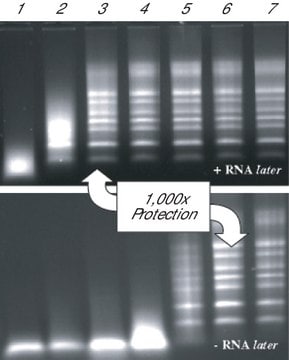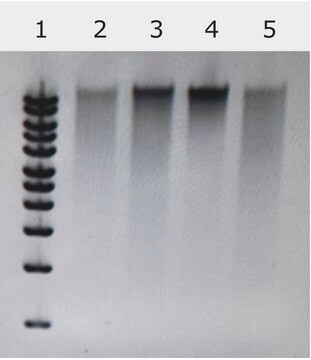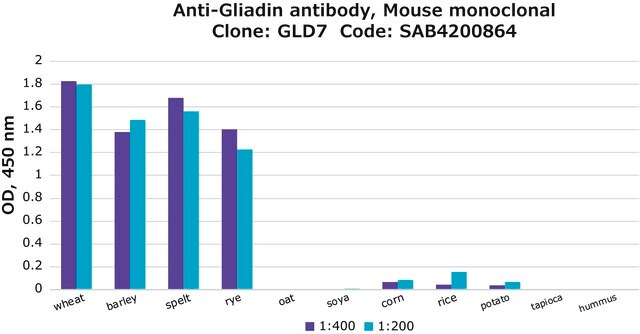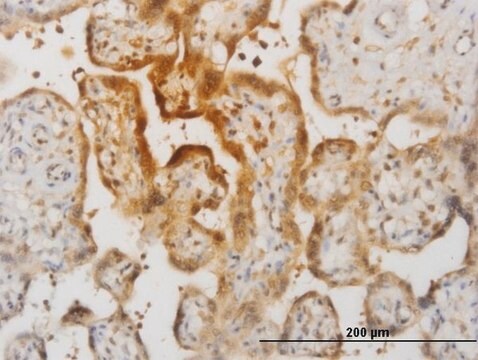PNS1010
Stabilyser Reagent
for stabilization of DNA, RNA, and protein in tissue extracts
About This Item
Recommended Products
form
liquid
Quality Level
feature
for stabilization of DNA, RNA, and protein in tissue extracts
shipped in
wet ice
storage temp.
2-8°C
General description
Stabilyser Reagent is a proprietary formulation of detergents and solutes optimized for efficient extraction, stabilization and storage of protein, DNA, and RNA from tissue samples. The unique composition of Stabilyser enables isolation of functionally active proteins, while maintaining integrity of nucleic acids. Stabilization of proteins and RNA is achieved even after 24 hours at room temperature Stabilyser reagent is compatible with Western blotting protocols, functional protein activity assays, and nucleic acid applications like qPCR.
Use in conjunction with a homognenizer for simultaneous tissue lysis and stabilization of protein and nucleic acids in tissue samples.
Application
Features and Benefits
- Gentle, non-denaturing lysis buffer does not interfere with downstream applications
- Convenient ready-to-use reagent
- Stabilizes RNA and protein for analysis at a later date
Preparation Note
Storage Class Code
10 - Combustible liquids
WGK
WGK 2
Flash Point(F)
Not applicable
Flash Point(C)
Not applicable
Certificates of Analysis (COA)
Search for Certificates of Analysis (COA) by entering the products Lot/Batch Number. Lot and Batch Numbers can be found on a product’s label following the words ‘Lot’ or ‘Batch’.
Already Own This Product?
Find documentation for the products that you have recently purchased in the Document Library.
Articles
Stabilize complete, uniform tissue homogenates. Maintain RNA and functional proteins with Stabilyser reagent, the only reagent that protects the integrity of nucleic acid and active protein in one uniform lysate mixture.
Related Content
An overview of cell lysis and protein extraction methods including detergent solubilization, freeze-thaw lysis, osmotic shock, sonication, enzymatic cell lysis, and mechanical disruption techniques such as Dounce, Polytron, and mortar and pestle homogenization.
An overview of cell lysis and protein extraction methods including detergent solubilization, freeze-thaw lysis, osmotic shock, sonication, enzymatic cell lysis, and mechanical disruption techniques such as Dounce, Polytron, and mortar and pestle homogenization.
Our team of scientists has experience in all areas of research including Life Science, Material Science, Chemical Synthesis, Chromatography, Analytical and many others.
Contact Technical Service





